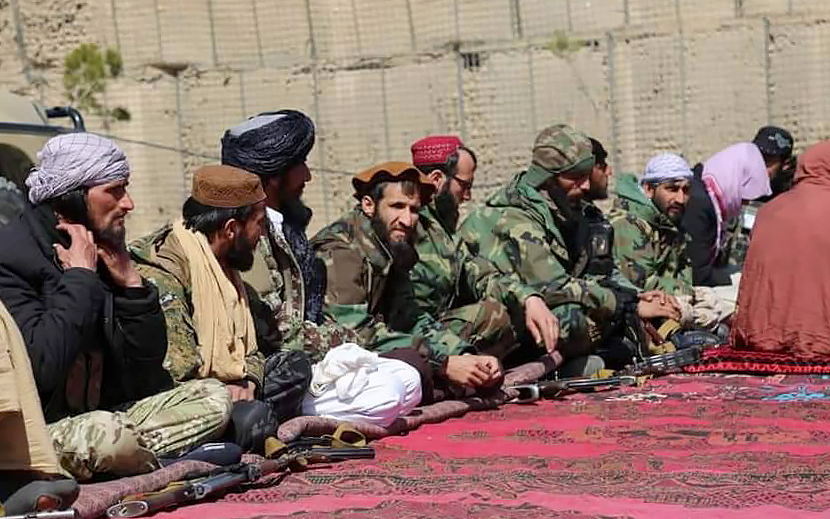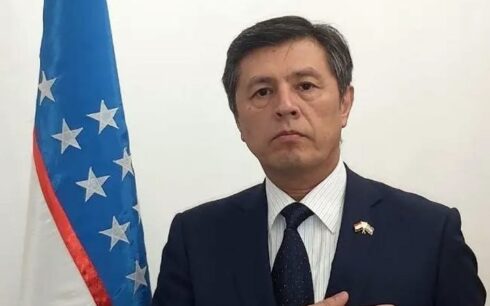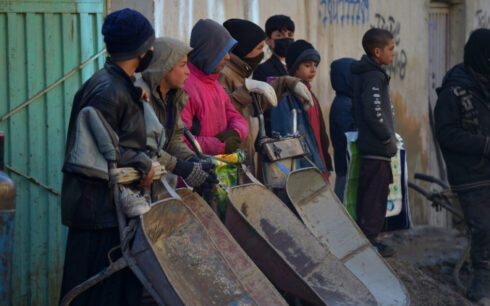The United Nations office in Afghanistan, also called UNAMA, in a report on Wednesday accused the Taliban of committing extrajudicial killings in Afghanistan in a period of 10 months of their rule in Afghanistan.
The report, titled “Human rights in Afghanistan: 15 August 2021 – 15 June 2022,” outlines the human rights situation in the country under Taliban rule.
Human rights
The report says Taliban authorities “bear responsibility for a broad range of human rights violations” despite some measures taken by them, seemingly for protection and promotion of human rights.
It adds that the “general amnesty” of the Taliban announced on August 17 last year for former government officials and former military personnel was not upheld consistently as UNAMA recorded at least 160 extrajudicial killings of former government and security officials by members of the Taliban between during this time.
The report “details extrajudicial killings of individuals accused of affiliation with armed groups, as well as cruel, inhuman and degrading punishments and extrajudicial killings of individuals accused of ‘moral’ crimes and the excessive use of force by law enforcement officials.”
UN says Taliban must investigate human rights violations, perpetrators should be held accountable and incidents should be prevented from reoccurring in the future.
The report says that two Taliban bodies – the vice and virtue ministry and the intelligence directorate – have been involved in limiting human rights and freedoms of Afghans, especially of women and girls.
The report says directives by the vice and virtue office are said to be recommendatory in nature, but at times, Taliban members have taken a harsh stance on their implementation, including carrying out physical punishments for alleged infringements of their directives.
UN report elaborates that in the last 10 months, the Taliban has limited people’s freedoms of expression “by cracking down on protests and curbing media freedoms, including by arbitrarily arresting journalists, protestors and civil society activists and issuing restrictions on media outlets.”
“The rights to freedom of peaceful assembly, freedom of expression and freedom of opinion are not only fundamental freedoms, they are necessary for the development and progression of a nation,” said Fiona Frazer, UNAMA Chief of Human Rights.
The report summarises UNAMA’s findings on civilians’ protection, extrajudicial killings, torture and ill-treatment, arbitrary arrests and detentions, the rights of women and girls in Afghanistan, fundamental freedoms and the situation in places of detention.
Civilian casualties
The report shows that 700 civilians were killed and 1,406 were wounded in Afghanistan during this time, attributing most of them to targeted attacks by Daesh against ethnic and religious minority communities in places of worship and schools.
“Our monitoring reveals that despite the improved security situation since 15 August, the people of Afghanistan, in particular women and girls, are deprived of the full enjoyment of their human rights,” said Markus Potzel, Acting Secretary-General’s Special Representative for Afghanistan.
Women’s rights
The report says that since August 15, the rights of women and girls to fully participate in education, the workplace and other aspects of public and daily life were progressively restricted and in many cases completely taken away.
“The education and participation of women and girls in public life is fundamental to any modern society. The relegation of women and girls to the home denies Afghanistan the benefit of the significant contributions they have to offer. Education for all is not only a basic human right, it is the key to progress and development of a nation,” said the UN envoy.
UN asked the international community to continue its support for the people of Afghanistan by ensuring that urgent humanitarian and basic needs are met.
Key findings
• The UN report highlights the following findings during the 10 months under Taliban rule in Afghanistan.
• 700 civilians were killed, 1,406 wounded in attacks attributed to Daesh as well as in unexploded ordnance explosions.
• Taliban committed 160 extrajudicial killings, 178 arbitrary arrests and detentions, 23 instances of incommunicado detention and 56 instances of torture and ill-treatment of former Afghan National Defense and Security Forces and government officials.
• Taliban committed 59 extrajudicial killings, 22 arbitrary arrests and detentions and 7 incidents of torture and ill-treatment of individuals over links with Daesh.
• Taliban committed 18 extrajudicial killings, 54 instances of torture and ill-treatment and 113 instances of arbitrary arrest and detention and 23 cases of incommunicado detention of individuals over links with the national resistance front, or the NRF.
• 217 instances of cruel, inhuman and degrading punishments were carried out by the Taliban.
• Taliban conducted 118 instances of excessive use of force.
• Human rights violations affected 173 journalists and media workers; 163 of which were attributed to the Taliban. Among these were 122 instances of arbitrary arrest and detention, 58 instances of ill-treatment, 33 instances of threats and intimidation and 12 instances of incommunicado detention.
• Six journalists were killed during the period – five by Daesh, one by unknown perpetrators.
• Human rights violations affecting 65 human rights defenders, 64 of which were attributed to the Taliban. Among these were 47 arbitrary arrests, 17 cases of incommunicado detention, 10 cases of ill-treatment and 17 cases of threats and intimidation.
• At least 59% of the population is in need of humanitarian assistance – an increase of 6 million people compared with the beginning of 2021.





